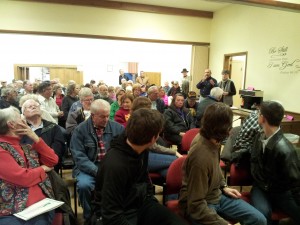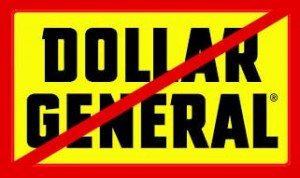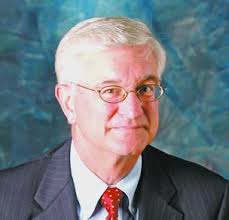A community meeting last week at the Union Chapel United Methodist Church drew a crowd of more than 70 residents to discuss the planned Dollar General development at the corner of Oakland Road and US 522, nine miles south of Berkeley Springs, West Virginia.
With one or two exceptions, almost everyone at the meeting expressed opposition to the out of state corporation coming into Morgan County and dropping one of its 11,000 stores in a rural residential area, when the county already has two dollar stores in Berkeley Springs — one a Dollar General and the other a Family Dollar
Residents raised concerns about safety, traffic, clean water issues, whether the store is needed, and the transformation of the neighborhood from rural residential to out of state corporate commercial.
Morgan County’s citizen opposition to the Dollar General drew widespread press attention — from West Virginia Metro News, to NBC25, to the State Journal and to even smaller publications like In The Panhandle.
At the meeting last Monday, residents were upset that Patrick McCuan, the out of state millionaire who developed Cacapon South, gave no warning to local residents of his plans to open the door to commercial development in their rural residential neighborhood.
Other than the Cacapon South development, McCuan has no connection to West Virginia — he lives in an estate called Sunset Hills at McCuan Farms in Woodbine, Maryland and in the Cypress Woods development in Naples, Florida.
McCuan’s representative in West Virginia is Justin Cowles, the brother of Delegate Daryl Cowles (R-Morgan County), the newly elected Majority Leader of the West Virginia House of Delegates.
At the community meeting, Justin Cowles defended McCuan’s decision to develop the property for Dollar General.
Cowles will appear on behalf the McCuan Development Group (MDG) at a January 27, 2015, 7 pm meeting of the Morgan County Planning Commission.
Also appearing at the meeting will be Joshua Allen representing Cross Development, the Dollar General developer.
Allen refused to answer a reporter’s questions about Cross Development’s plans for a Dollar General at the site.
“I’ll answer all questions at the Planning Commission meeting on Tuesday,” Allen said.
Opponents of the Dollar General store hope to pack the Planning Commission meeting and express their opposition to the seven waivers that Cross Development is seeking from the Planning Commission to move forward.
In a two-page document filed by MDG with the Planning Commission, Cowles makes some hard to believe claims — like a Dollar General will result in less traffic than the traffic generated by a small group of working families the home sites were intended for.
Cowles also seeks to deflect attention away from the possibility of a Dollar General store going in at the site.
“Whether the future retail development is an upscale boutique retailing arts and crafts to tourists and wealthy transplants or a discount retailer serving the working families of southern Morgan County, the specifics and technical requirements of a retail development are not the subject of this. . . proposal which merely aims to merge four small parcels into one larger parcel,” Cowles writes.
Cowles has openly admitted, including at the January 19 meeting at the Union Chapel church, that McCuan has a contract of sale with Cross Development and that the sale will go through once certain contingencies — presumably approval of the waivers by the Planning Commission among them — have been met. (At the meeting, Cowles refused to make that contract available for public inspection.) Cowles said that Cross Development will then lease the site to Dollar General to build the store.
It is a bit disingenuous and unseemly for Cowles to portray himself and MDG as on the side of “the working families of southern Morgan County.”
After all, Cowles is working for and answers to McCuan, a multimillionaire who lives in Maryland and Florida.
And after all, as Cowles puts it, the Dollar General property was originally intended for “entry level homes for working families.”
Now, McCuan wants the Planning Commission to take those lots off the “working family” market and develop them commercially.
He then wants to turn over the property to an out of state corporation, Dollar General, whose chief executive Richard Dreiling in 2013 received annual compensation totaling $7.6 million and realized a profit of more than $21 million on the exercise of company-granted stock options.
So, which side is Justin Cowles on?
The working people of southern Morgan County who would get the handful of Dollar General sales associates or cashier jobs at less than $8 an hour?
Or Richard Dreiling — who is being paid about $1,690 an hour — and Cowles’ multimillionaire boss Patrick McCuan?





